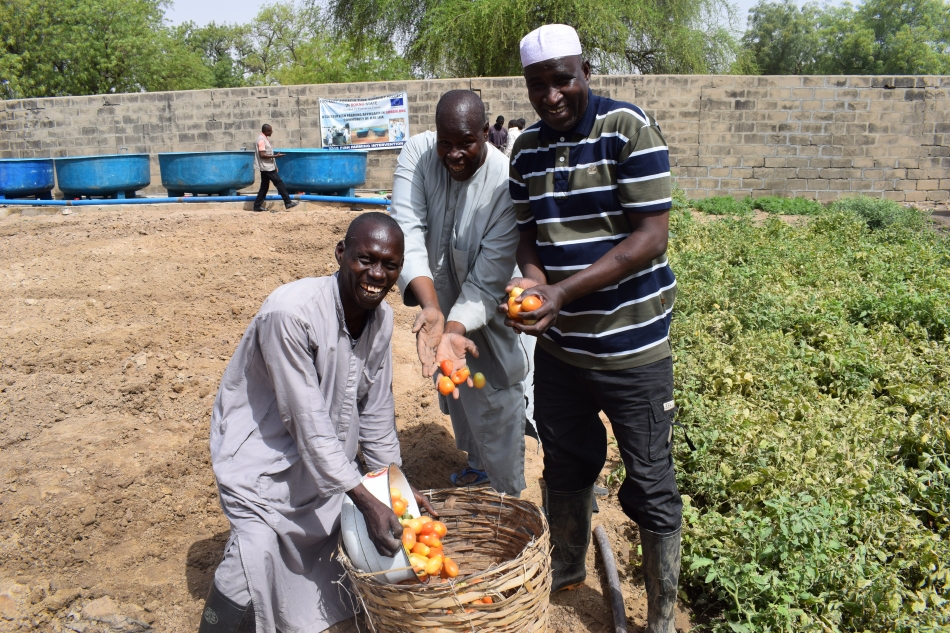Changing lives for better nutrition, job creation and improved incomes
FAO’s aquaculture initiative is creating jobs for young men and women and opportunities for others along the fish value-chain. Around 200 direct decent jobs in aquaculture have already been created and around 100 more are expected in 2021. At the end of a six-month cycle, the intervention generated approximately Nigerian Naira (NGN) 382 500 (USD 1 062) per household, providing vital income to these vulnerable communities.
The integrated vegetable farming is also supplementing households’ incomes and nutritional needs. Some participants reported that at the peak of their harvest they were able to earn between NGN 8 000 and 12 000 per week (USD 21-31) from selling vegetables.
FAO has also incorporated Group Savings and Loan Associations training into the groups, enabling the farmers to harness their earnings for reinvestment and diversification into other livelihood activities.
With food insecurity and malnutrition being major challenges in northeast Nigeria, the aquaculture intervention has improved dietary diversity of participating households. With the fishing ban in Lake Chad, this initiative makes fish easily accessible within rural communities, increasing food options that are available to vulnerable households. Vegetable harvests have further enhanced households’ access to nutritious food.
A good practice for upscaling
The cluster approach employed by FAO, where groups work together and earnings and harvests are shared, encourages collective learning, participation and social cohesion.
The initiative has also mitigated security risks for vulnerable fisherfolk because they no longer need to go to Lake Chad for fishing.
Catfish farming using tanks, integrated with vegetable production, is a productive and efficient crop-aquaculture combination, especially in a country such as Nigeria where fish feed and fingerlings are locally available. This fish-crop farming system can be rapidly upscaled for increased food security and nutrition, incomes and a mutually beneficial integration of internally displaced persons in their host communities.
The initiative is part of a larger European Union Trust Fund programme to assist close to 100 000 households in Borno to restore their livelihoods in farming, livestock, fish production and agribusiness.
Related links
